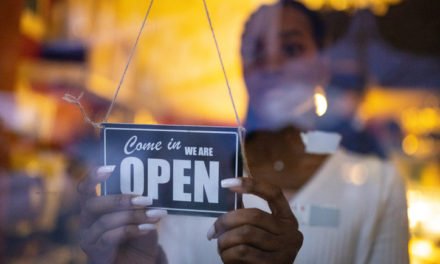August 12, 2017 will forever be the day that altered the course of my life. On that rainy summer day, I was attending a friend’s wedding in the countryside of Pennsylvania. I typically don’t enjoy nature, but I was happy to be out there to celebrate their commitment. Nature is not only home to 70 percent of my allergies, it is also a reminder of unspeakable horrors, both past and present. With origins tracing back to the Jim Crow South, being educated about the African American experience was guaranteed for me.
When I arrived back home from the wedding, I turned on my TV to see a disturbing report about a demonstration in Charlottesville, VA. The Unite the Right rally, organized by members of various white supremacist groups, assembled to express their reprehensible beliefs. Of course, I knew that these groups still existed, but the blatant — even proud — demonstration jolted me. What made it worse was that while expressing my disappointment and hurt to those I had recently welcomed into my ‘inner circle,’ they downplayed, challenged and even downright dismissed my frustration. Eventually I realized that I had fallen prey to a vicious cycle of emotional turbulence.
After seeing the demonstration in Charlottesville, VA, I expressed my disappointment and hurt to those I had recently welcomed into my ‘inner circle,’ but they downplayed, challenged and even downright dismissed my frustration. Click To Tweet- When someone refuses to listen to what you have to say. In any relationship, being able to talk about hurtful experiences is important. Having the psychological safety to address hard things and offenses allows both parties to grow. For the person who has been offended, they have the opportunity to grow in their ability to advocate for themselves. For the person who has carried out the offense, they have an opportunity to grow and change their behavior.
- When a person makes you feel as though your needs are not important. Everyone has the propensity to be selfish every now and then. In different seasons, we may benefit from extra attention. However, when this need for constant attention, especially at the expense of your needs, becomes normal and expected then there is a problem. If one person constantly demands that their desires and needs be met before or instead of the other, then there is an untenable and harmful imbalance at play.
- When you are made to feel that you’re being too sensitive. I remember when a co-worker expressed to me her concerns about a disagreement that took place with a senior team member. She was aggrieved. Her confidence to trust her gut was wobbly at first, but as we continued to talk and she became more comfortable, I affirmed that she was not making anything up. What she experienced was real and valid.
- When you begin making excuses for the other person’s bad behavior. People tend to make excuses when someone feels they have no other option. If the price you pay for showing courage by advocating for yourself is a dismissive response from someone that offended, then mistrust can brew. Then the person who feels emotionally unsafe either pulls away from the environment or begins to make excuses for the other person to avoid having an open, honest dialogue.
As we continue to strive for diverse, equitable and inclusive workspaces, it is important that employees have the freedom to bring their full selves to the workplace. In our pursuits, it is imperative that oppressed groups — and, when appropriate, their allies — have safe spaces in which to share their concerns and to receive affirmation and validation of their lived experiences. When offenses are downplayed, it feeds a culture wherein uncomfortable conflict is not only unwelcomed but is actively avoided, leading to further erosion of trust and well-being. Organizations that make a sincere, consistent effort over time to address toxic culture dynamics within organizations will garner greater trust as they listen to, believe and properly support employees from subordinated groups. Educating employees on the signs and dangers of gaslighting is one important step in the journey to creating an inclusive workplace.
It is imperative that oppressed groups—and, when appropriate, their allies—have safe spaces in which to share their concerns and to receive affirmation and validation of their lived experiences. Click To Tweet



















